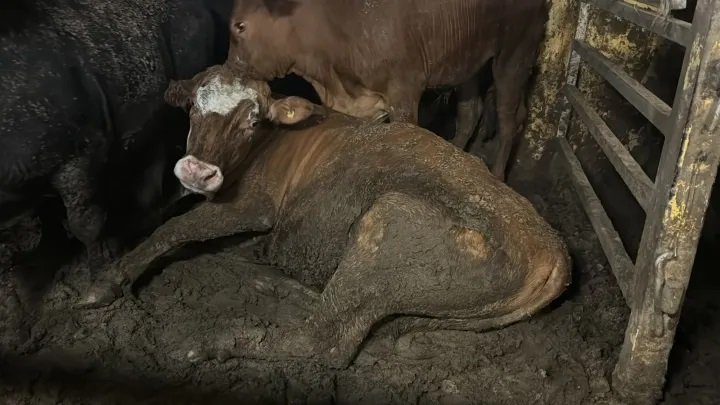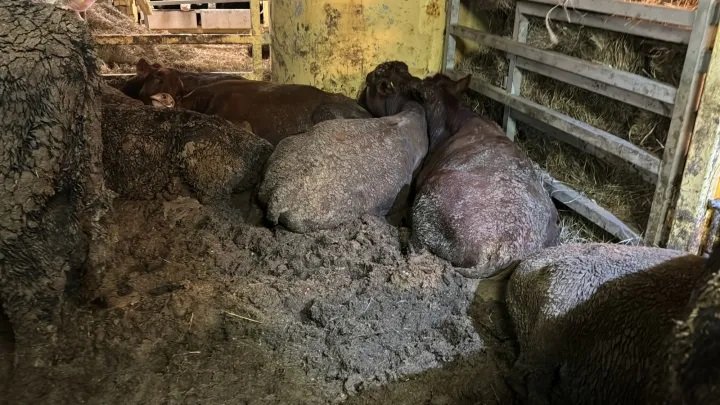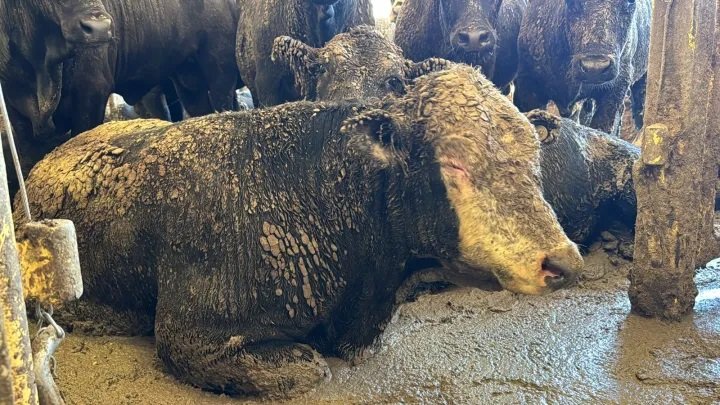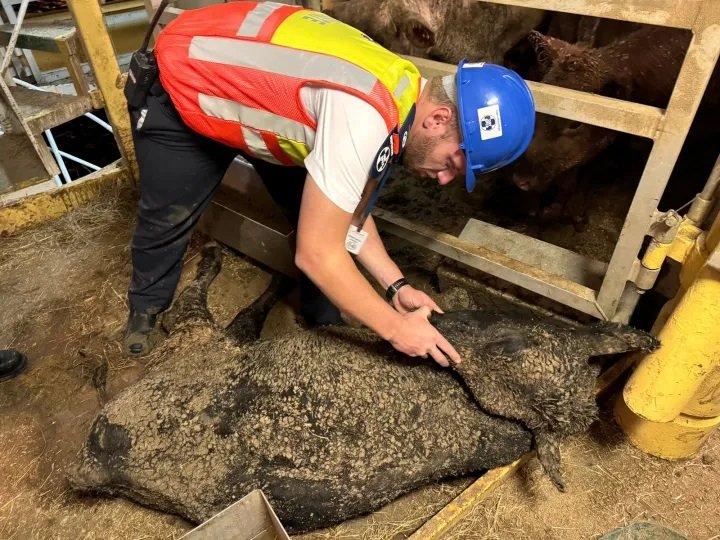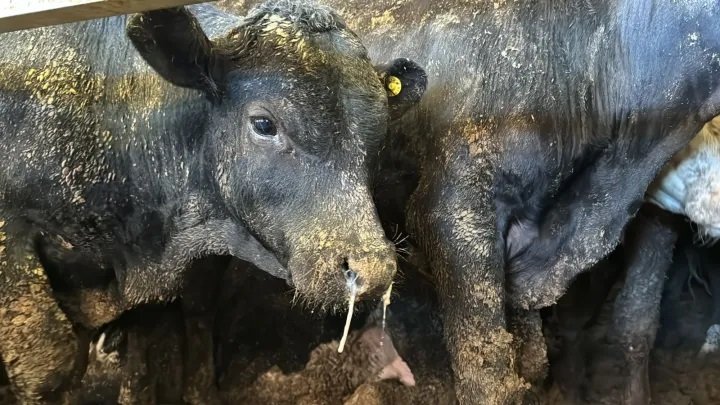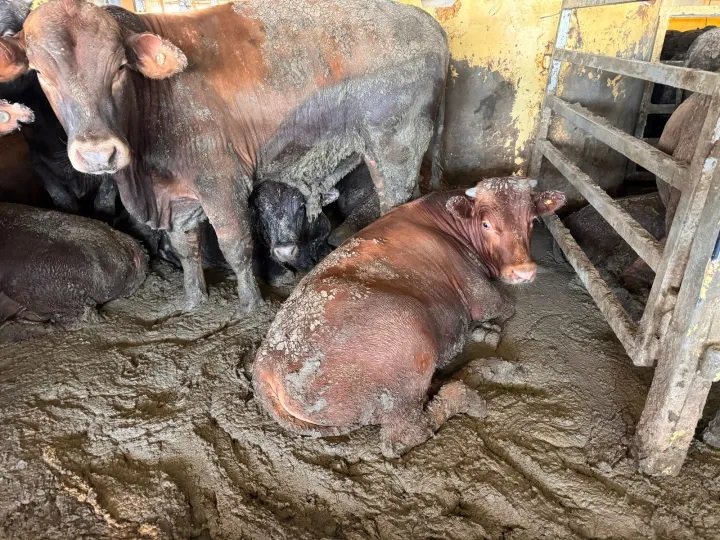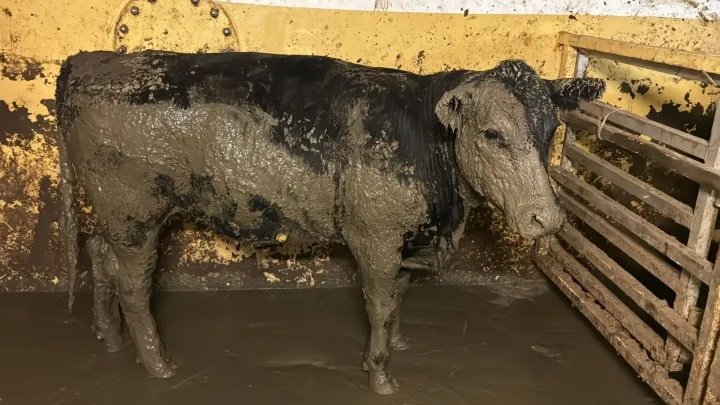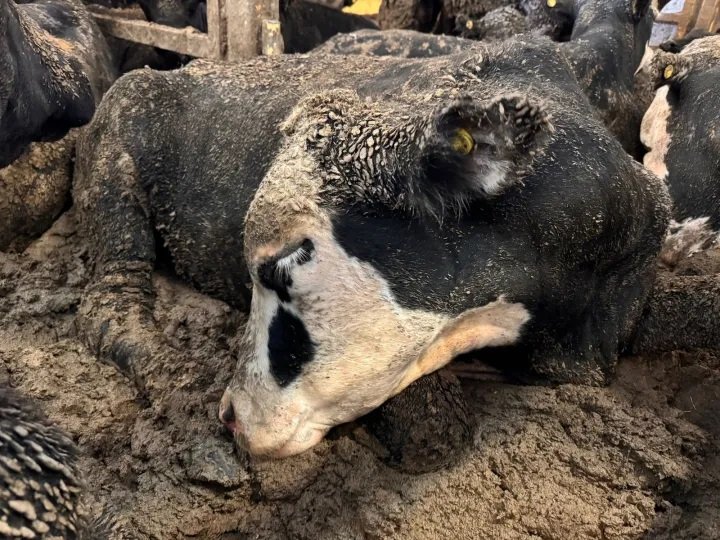Cape Town’s Protest Against Live Animal Export following the docking of the livestock carrier ship Al Kuwait
Animal rights activists gathered at the Taliep Petersen Bridge on Nelson Mandela Boulevard to voice their outrage over the treatment of livestock aboard the cattle ship Al Kuwait. The ship, which had docked in Cape Town Harbor, was transporting a staggering 19,000 cattle to Iraq. As the unmistakable odor lingered in Cape Town's bustling CBD, concerned citizens couldn't help but wonder about the plight of the animals confined within the walls of Al Kuwait. Carli Costa, an impassioned animal rights activist, posed a poignant question: "If the smell in Cape Town CBD was so strong today, can one imagine what the animals have to smell inside the ship?"
The protest against live animal export and the cattle ship in Cape Town Harbour on 19 February 2024. Animal rights groups were made aware of the cattle ship after an overpowering stench, described as a combination of sewage, rotten fish, cow dung and goat urine, swept across the CBD and nearby suburbs. (Photo: Gallo Images / ER Lombard)
Joined by fellow protesters at the Taliep Petersen Bridge on February 19, 2024, Carli and others voiced their dismay over the live animal exports, stirred by the arrival of the livestock carrier ship.
The ship, embarking on a journey to Iraq with 19,000 cattle aboard, had just made an emergency stop at Cape Town harbor after traversing the seas for eight days from Brazil.
The ship's pause was necessary for vital supplies—fuel, water, food, and medications - for both the crew and the animals. Yet, leaked images shared by the Daily Maverick revealed a distressing scene: cattle confined to cramped quarters, some struggling amidst their own filth. Concerned, the National Council of SPCAs (NSPCA) delayed the ship's departure until Wednesday, extending the animals' already arduous journey by another 24 days before reaching the Port of Basra.
Grace de Lange from the NSPCA, accompanied by a team from the Cape of Good Hope SPCA, stepped aboard the ship, witnessing firsthand the harsh realities within. Fecal buildup and elevated levels of ammonia posed serious risks to the animals' health, causing distress and, tragically, fatalities. Despite assurances of vessel cleanliness at sea, prolonged stays in port due to logistical delays only worsened conditions for the animals.
For the NSPCA, the fight for the humane treatment of animals isn't new. Engaged in legal battles with the ship's owners since 2019, they tirelessly advocate for improved conditions and proper care during transportation. Past victories include halting a similar shipment to Kuwait, where concerns about animal welfare during lengthy sea voyages were paramount.
Among the protesters, Carli Costa and others from organizations like Four Paws stood firm against live animal exports.
Deidré Daniels from Four Paws voiced concerns about adequate regulations' lack. He highlighted the risks of overcrowding, rough handling during transport, and exceeding temperature limits, all of which can lead to injuries and fatalities.
City officials, including Patricia van der Ross, expressed deep concern for the animals' welfare aboard the Al Kuwait. Their condemnation of the conditions aboard the ship spurred calls for monitoring waste discharges into the harbor, underscoring the urgency of the situation. Despite efforts to address the issue, the ship's noxious odor proved too much for some, forcing nearby companies to send their employees home early - a poignant reminder of the very real suffering unfolding just beyond the harbor's edge.




